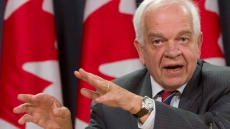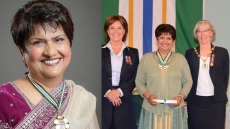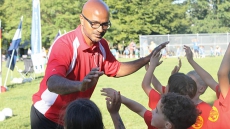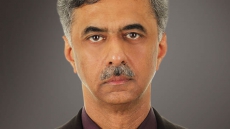Vancouver Mayor Gregor Robertson’s hard work and commitment since the past three terms has brought about an incredible change to the city and its residents. Addressing issues the City of Vancouver faces such as housing affordability, transit system, and homelessness, among others, Robertson has contributed greatly to the growth and development of the city.
In an exclusive interview, Mayor Robertson shares with DARPAN his thoughts on the biggest challenges the City of Vancouver is currently facing, his plans of dealing with these challenges, and his successful journey as the Mayor.
What would you say are your major contributions to the City of Vancouver as Mayor?
In recent years, we’ve become one of the most economically powerful cities in Canada and witnessed impressive job growth. Vancouver is leading the country in economic growth, and will continue to do so through 2019 at an average rate of over 3 per cent. We’ve also been rated by KPMG as fifth most competitive place to do business out of 29 major global cities, ahead of all U.S. west coast cities.
Coming out of the Olympics we’re really hitting our stride and technology, innovation, green jobs, and creative industries which is great news for young people. It’s very promising for the city’s future to be one of the leading places in industries that are the fastest growing in the world right now.
Housing affordability is an issue that Vancouver faces. How is the City dealing with it?
Housing affordability in the City of Vancouver is without question one of the most pressing issues our city has faced. I empathize with the anxieties of many families and young people who wish to contribute to the growth and diversity of the City, but who can’t afford to live here. It’s a complex problem that the solutions for require partnership, collaboration and willingness from all three levels of government.
The City is looking at all tools available to help relieve pressure on young families in an unaffordable housing market that has a lack of family friendly units and a rental vacancy rate of less than one per cent.
We’ve recently approved in principle an Affordable Home Ownership Pilot, the first of its kind in Vancouver that will allow young families to enter the housing market and put down roots in the city. Under the program, first-time buyers who have lived in Vancouver for the last five years would be eligible to participate in the program. At least one buyer must work in Vancouver, and cannot have owned property before. The eligible household income for the program ranges from $67,540/year (single and couple households) up to $96,170/year (households with at least one dependent child).
The Affordable Home Ownership program is the latest measure the Council has adopted in creating affordable housing options to make Vancouver a place everyone can call home. Other actions on housing include:
• Directing staff to work with AirBNB and other listing services to collect data on the frequency and volume of short-term rental housing;
• Approving a record 1,300+ new rental homes in 2015;
• Offering 20 sites of City-owned land worth $250 million to senior governments to use for affordable housing;
• Starting construction on the first below-market family rental building in the city in Southeast False Creek;
• Researching the impact of empty homes in Vancouver’s housing market;
• Calling for both a speculation tax and a luxury sales tax to create a more level playing field in the housing market;
• Bringing in the strongest tenant protections of any municipality in B.C. to Vancouver;
• Directing staff to increase family unit requirements in new housing projects;
• Approving new incentives to create 2 and 3 bedroom units in new rental housing projects; and
• Providing four City land sites to enable Vancouver’s first Community Land Trust.
I’ve called upon the provincial government to introduce a speculation tax to slow down the practice of flipping houses, which treats housing as a commodity and intensifies the price escalation. Also, introducing a luxury housing tax would ensure that the very wealthiest buyers or investors pay an added price, which (like a speculation tax) would raise new funds to make housing more affordable for those on low and modest incomes.
Housing affordability is a keen concern for all of us in the City of Vancouver. It will take a concerted effort from all levels of government to ensure we can tackle this problem. While there is no single solution to housing affordability, we’re on the right track towards understanding the multiple factors we will need to address.
Talking about housing, Vancouver is also dealing with homelessness. What steps are taken to reduce or stop this issue?
Tackling street homelessness will take a multifaceted approach. During my tenure we have expanded the City’s Homeless Outreach Team to be city-wide, providing more services to vulnerable residents and connecting them to housing. We’ve opened new winter low-barrier shelters in neighbourhoods like Downtown South and Mount Pleasant, and we’ve helped more than 1,000 people move from shelters into permanent housing since 2009.
For the first time in the City’s history we’ve deployed legal injunctions on landlords of Downtown Eastside single-room occupancy hotels, requiring them to fix and maintain their buildings and protect tenants. We’ve also collaborated with the YWCA to build 21 units of housing designated for low-income women and children as part of a new library in Strathcona, and another 31 units on top of a new community Fire Hall in Champlain Heights.
The City also purchased the Ramada Hotels on East Hastings and Kingsway to provide low-income interim housing to people who moved from shelters and are waiting for permanent housing. We have also offered 20 sites of City-owned land worth $250 million to senior governments to use for affordable housing. We’re on the right track towards ending homelessness in the city but there is more to do.
What are your views on the latest federal budget? How will it benefit the growth of Vancouver?
I’m encouraged the federal budget makes significant commitments to short and long-term investments in housing, transit and social infrastructure. The commitments by the federal government to increase funding for affordable housing and homelessness programs are urgently needed given the number of residents throughout Metro who struggle to access housing. As well, federal funding for upgrading seniors’ housing, co-ops and maintaining affordability will be a big boost for protecting low-income households. The new funding and flexibility dedicated to transit will help us get moving on improving transit in Vancouver and throughout the region, and will both grow our economy while protecting our environment.
Benefits of the 2016 federal budget for the City of Vancouver include:
• A commitment of at least $370 million as a down payment for transit in Metro Vancouver;
• A willingness to fund up to 50 per cent of transit projects, instead of just 1/3rd;
• Allowing transit funding to go towards accelerating design and engineering preparations for major projects, like the Broadway Subway;
• Increased funding for the Homelessness Partnership Strategy and Affordable Housing Initiative;
• Commitment to developing a National Housing Strategy;
• Reinstating HUSAR funding to support emergency preparedness.
We’re ready to work closely and quickly with the provincial and federal governments to get these projects started in Vancouver. Housing and transit are top priorities for Vancouver City Hall and it’s encouraging to see these priorities reflected in the federal budget.
Access Without Fear is a great policy but what sort of challenges would the City be facing with its implementation?
Vancouver has become the first city in Western Canada to provide safe access to City services for all residents, regardless of immigration status. The policy will allow vulnerable residents, whether they’re foreign students or workers with expired permits, refugees whose claims were rejected or temporary foreign workers who lost their jobs, to interact with civil servants without being afraid they’ll get reported to the Canada Border Services Agency, unless required by law.
It’s the first step towards getting other civic areas (VPL, VSB, Park Board) to follow similar policies and we’re glad that the Vancouver Police Board has already come on board to follow our lead. As a city our commitment is to ensure a safe city for everyone.
What is your vision of the city five or 10 years from now?
For the past three terms I have had the honour of being the Mayor of Vancouver. Together we’ve brought about progressive, positive change. My vision for the city is a place where people of all incomes and backgrounds can afford to live. Vancouver needs to continue to foster a strong, diverse, and resilient economy with good paying jobs and celebrate and recognize the achievements of our intercultural communities. We must demonstrate our environmental leadership by staying on the path to becoming the Greenest City in the world and shifting to 100 per cent renewable energy. I want to ensure that Vancouver remains a vibrant place where people, can live, work, and engage with one another.





